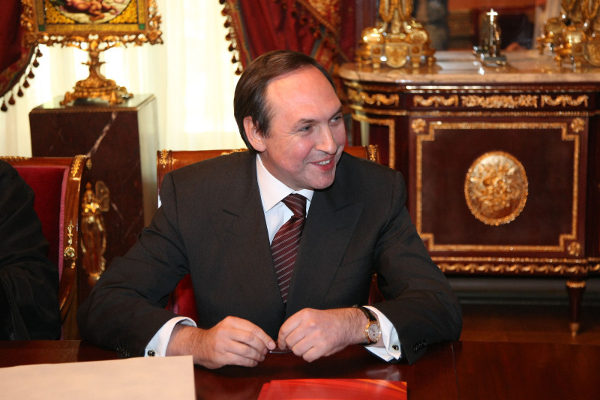How should the Russian public education system be modernized?
 On October 17 Chairman of the State Duma Education Committee, Dean of the School of Public Administration and Chairman of the Russkiy Mir Foundation Management Board Vyacheslav Nikonov spoke at a plenary meeting of the State Duma.
On October 17 Chairman of the State Duma Education Committee, Dean of the School of Public Administration and Chairman of the Russkiy Mir Foundation Management Board Vyacheslav Nikonov spoke at a plenary meeting of the State Duma.
He noted that October 15 marked the 200th anniversary of the birth of Mikhail Lermontov, and on that day in the Penza region, near the Lermontov family estate Tarkhany, Russian President Vladimir Putin met with Russian teachers.
“I congratulate all of us. The Organization for Economic Cooperation and Development last week recognized Russia as the most educated country in the world. Why? Because in Russia 60% of the population has a higher education. Canada is in second place with 54%, Israel in third with 47% and the US in fourth with 43%. Does that mean that we do not have any problems in education? Of course they exist and there are numerous. But we see these problems very well, and what was said in Penza by teachers and the president indicates that there is an understanding of these problems, including in the State Duma, among all the political groups.
There is a clear understanding of the need to all preschoolers with a full-fledged preschool education. There is an understanding that our children should not have to study in two or three shifts at school, although that is becoming more frequent. There is an understanding that teachers must receive a worthy salary for their difficult work, that the number of universities needs to be reduced and phony universities should be done away with, which is often talked about in the media. It is necessary to provide comprehensive vocational education. There is an understanding both of the general problems and the specific problems which we need to resolve in the near future.
If we look at the general policy problems, then I would above all else underscore that in Penza the teachers were most irritated by the fact that education is perceived as a service. Education is mission, and in education an exceptionally important factor is not only the instruction but also upbringing, and the word “upbringing” was heard as often in the haunts of Lermontov as when Lermontov himself was raised, when they brought up the Russian nobility on the same principles which in general our youth should be brought up today.
What is a nation? A nation is its monuments, its holidays, its graves, its history, its language. It is our love for our native hearth, our ancestral graves. Or as Lermontov said, “happiness is only there were we are loved, where we are believed.” Upbringing is values, values of honor, dignity. Upbringing is will. Upbringing is health, which truly was instilled in our noble families.
The president emphasized that we must pay increasing attention to upbringing. Upbringing means an education in the humanities, a common educational space, and pursuing specific goals. The president set one goal and I think that we should pursue it together, with the joint efforts of all of the political factions and rather expediently.
Right now state funded university spots are only given to accredited professional specializations, but we know that there are a massive number of professions which are created by scientific progress, for example in nanotechnology and biotechnology. Budget funded spots are only allocated to them if the program has already been accredited… Clearly the leading universities should make exceptions and do so quickly. The corresponding draft legislation has already been prepared by the Education Committee, and I call on all the deputies of our faction and the other factions to expediently resolve this issue which was brought up in the Penza region.
As one French revolutionary said, you have done nothing for your country unless you have done everything for your country. We have done a lot in education, but we have far from done everything.
Source: Duma-er.ru







